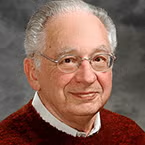
Center for Problem-Oriented Policing
Mission and History of the Center for Problem-Oriented Policing
The mission of the Center for Problem-Oriented Policing is to advance the concept and practice of problem-oriented policing in open and democratic societies. It does so by making readily accessible information about ways in which police can effectively and equitably address specific crime and disorder problems.
The Center for Problem-Oriented Policing was founded as a private non-profit organization in 2002. In 2015 it became a center at Arizona State University's Watts College of Public Service & Community Solutions, with affiliations with other police practitioners, researchers, and universities dedicated to the advancement of problem-oriented policing.
The work of the Center for Problem-Oriented Policing was principally funded by the U.S. Department of Justice, Office of Community Oriented Policing Services from 1999 to 2012. Its founders were Michael S. Scott, Ronald V. Clarke, and Graeme R. Newman. Others instrumental in developing the POP Center were Herman Goldstein, John E. Eck, Deborah Lamm Weisel, Rana Sampson, and Karin Schmerler.
Since the publication of the first POP Guide in 2001, millions of copies of the POP guides and other POP Center publications have been distributed to or downloaded by individuals and agencies throughout the world. POP Center materials are also widely used in police training and college courses.
Launched in 2003, the POP Center web site has provided innovative learning experiences, curriculum guides, teaching aids, problem analysis tools, and an immense range of information to its users.
Design and programming work for the POP Center website from its inception through 2017 was done by staff at the Professional Development Program at the State University of New York at Albany. This work is currently done by the Watts College of Public Service & Community Solutions.
Director
Michael S. Scott

Michael S. Scott is the director of the Center for Problem-Oriented Policing and clinical professor at Arizona State University's School of Criminology & Criminal Justice. He was formerly clinical professor at the University of Wisconsin Law School; chief of police in Lauderhill, Florida; civilian administrator in the St. Louis Metropolitan, Ft. Pierce, Florida, and New York City police departments; senior researcher at the Police Executive Research Forum (PERF); and a police officer in the Madison, Wisconsin, Police Department. He is the chair of the judging committee for the Herman Goldstein Award for Excellence in Problem-Oriented Policing. He was the 1996 recipient of PERF's Gary P. Hayes Award for innovation and leadership in policing. Scott holds a law degree from Harvard Law School and a bachelor's degree from the University of Wisconsin-Madison.
Staff
- Conference Coordinator: Nancy Leach
- Goldstein Award Coordinator and Advisor: Tamara Herold
- Goldstein Award Chair: Ronald Glensor
Co-founders
Ronald V. Clarke
 Ronald V. Clarke was University Professor at the School of Criminal Justice, Rutgers University and Associate Director of the Center for Problem-Oriented Policing. He previously headed the British government's criminological research department, where he had a significant role in developing situational crime prevention and the British Crime Survey. Clarke is the founding editor of Crime Prevention Studies, and his publications include Designing Out Crime (HMSO 1980, with Pat Mayhew), The Reasoning Criminal (Springer-Verlag 1986, with Derek Cornish), Situational Crime Prevention: Successful Case Studies (Criminal Justice Press, 1997), Superhighway Robbery (Willan Publishing, 2003, with Graeme Newman), Crime Analysis for Problem Solvers (U.S. Department of Justice, 2005, with John Eck), and Outsmarting the Terrorists (Praeger 2006, with Graeme Newman). He previously chaired the selection committee for the annual Herman Goldstein Award for Excellence in Problem-Oriented Policing. He was the 2015 co-recipient (with Pat Mayhew) of the Stockholm Prize in Criminology. Clarke held a doctorate in psychology from the University of London. He passed away in May 2025.
Ronald V. Clarke was University Professor at the School of Criminal Justice, Rutgers University and Associate Director of the Center for Problem-Oriented Policing. He previously headed the British government's criminological research department, where he had a significant role in developing situational crime prevention and the British Crime Survey. Clarke is the founding editor of Crime Prevention Studies, and his publications include Designing Out Crime (HMSO 1980, with Pat Mayhew), The Reasoning Criminal (Springer-Verlag 1986, with Derek Cornish), Situational Crime Prevention: Successful Case Studies (Criminal Justice Press, 1997), Superhighway Robbery (Willan Publishing, 2003, with Graeme Newman), Crime Analysis for Problem Solvers (U.S. Department of Justice, 2005, with John Eck), and Outsmarting the Terrorists (Praeger 2006, with Graeme Newman). He previously chaired the selection committee for the annual Herman Goldstein Award for Excellence in Problem-Oriented Policing. He was the 2015 co-recipient (with Pat Mayhew) of the Stockholm Prize in Criminology. Clarke held a doctorate in psychology from the University of London. He passed away in May 2025.
Graeme R. Newman

Graeme R. Newman is Distinguished Teaching Professor Emeritus at the School of Criminal Justice, University at Albany. He has published works in the fields of the history and philosophy of punishment, comparative criminal justice, private security, situational crime prevention, and e-commerce crime, and has written commercial software. He was CEO of a publishing company for 15 years and in 1990 established the United Nations Crime and Justice Information Network. Among the books he has written or edited are: Superhighway Robbery: Crime Prevention and E-commerce Crime (with Ronald V. Clarke) and Rational Choice and Situational Crime Prevention (with Ronald V. Clarke and Shlomo Shoham). Professor Newman received his bachelor's degree from the University of Melbourne in Australia and his doctorate from the University of Pennsylvania.
Authors
List of POP Center Authors and Their Publications
Original Proponent of Problem-Oriented Policing
Herman Goldstein
 The late Herman Goldstein (1931-2020) was a professor emeritus at the University of Wisconsin-Madison Law School and the original architect of the problem-oriented approach to policing. His first experiences in working with the police were in Philadelphia as a graduate student in governmental administration at the University of Pennsylvania and subsequently as an assistant to the city manager of Portland, Maine. He spent two years observing the on-the-street operations of the police in Wisconsin and Michigan as a researcher with the American Bar Foundations Survey of the Administration of Criminal Justice, and then participated in the analysis phase of that landmark project. From 1960 to 1964, he was executive assistant to the superintendent of the Chicago Police Department, O.W. Wilson, the widely recognized architect of the professional model of policing. Professor Goldstein has published widely on problem-oriented policing, the police function, police discretion, the political accountability of the police, and the control of police misconduct. He was co-author of the American Bar Association Standards Relating to the Urban Police Function. His 1977 book, Policing a Free Society, is among the most frequently cited works on the police. He first described the problem-oriented approach to policing in a 1979 article, which he expanded upon in his 1990 book, Problem-Oriented Policing. Professor Goldstein's research and writings have inspired many efforts to implement and advance problem-oriented policing in police agencies around the world.
The late Herman Goldstein (1931-2020) was a professor emeritus at the University of Wisconsin-Madison Law School and the original architect of the problem-oriented approach to policing. His first experiences in working with the police were in Philadelphia as a graduate student in governmental administration at the University of Pennsylvania and subsequently as an assistant to the city manager of Portland, Maine. He spent two years observing the on-the-street operations of the police in Wisconsin and Michigan as a researcher with the American Bar Foundations Survey of the Administration of Criminal Justice, and then participated in the analysis phase of that landmark project. From 1960 to 1964, he was executive assistant to the superintendent of the Chicago Police Department, O.W. Wilson, the widely recognized architect of the professional model of policing. Professor Goldstein has published widely on problem-oriented policing, the police function, police discretion, the political accountability of the police, and the control of police misconduct. He was co-author of the American Bar Association Standards Relating to the Urban Police Function. His 1977 book, Policing a Free Society, is among the most frequently cited works on the police. He first described the problem-oriented approach to policing in a 1979 article, which he expanded upon in his 1990 book, Problem-Oriented Policing. Professor Goldstein's research and writings have inspired many efforts to implement and advance problem-oriented policing in police agencies around the world.
Publications by Herman Goldstein (University of Wisconsin Law School Library Collection)
Disclaimer
The opinions contained herein are those of the authors and do not necessarily represent the official position or policies of the Center for Problem-Oriented Policing or Arizona State University. References to specific agencies, companies, products, or services should not be considered an endorsement by the authors, the Center for Problem-Oriented Policing or Arizona State University.